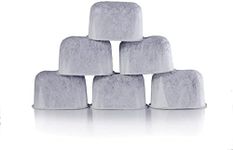Buying Guide for the Best Coffee Filters
Choosing the right coffee filter can significantly impact the taste and quality of your coffee. The type of filter you use can affect the flavor, strength, and clarity of your brew. When selecting a coffee filter, consider the type of coffee maker you have, your taste preferences, and any specific needs you might have, such as environmental concerns or ease of use. Here are some key specifications to consider when choosing a coffee filter.MaterialCoffee filters come in various materials, including paper, metal, and cloth. Paper filters are the most common and are known for producing a clean, crisp cup of coffee by trapping oils and fine particles. Metal filters, often made of stainless steel, allow more oils and fine particles to pass through, resulting in a richer, fuller-bodied coffee. Cloth filters strike a balance between paper and metal, providing a clean cup with some of the oils and fine particles. Choose a material based on your taste preference: paper for a cleaner taste, metal for a richer flavor, and cloth for a balanced brew.
Size and ShapeCoffee filters come in different sizes and shapes to fit various coffee makers. Common shapes include cone, basket, and disk. Cone filters are typically used in pour-over and drip coffee makers, while basket filters are used in standard drip coffee makers. Disk filters are often used in AeroPress and other specialized coffee makers. Ensure you choose a filter that matches the size and shape of your coffee maker to ensure proper brewing and avoid any mess.
Micron RatingThe micron rating of a coffee filter refers to the size of the pores in the filter material. A lower micron rating means smaller pores, which will trap more fine particles and oils, resulting in a cleaner cup of coffee. A higher micron rating means larger pores, allowing more oils and fine particles to pass through, resulting in a richer, fuller-bodied coffee. If you prefer a cleaner taste, opt for a filter with a lower micron rating. If you enjoy a richer flavor, choose a filter with a higher micron rating.
Environmental ImpactConsider the environmental impact of the coffee filters you choose. Paper filters are often single-use and can contribute to waste, but some are made from recycled materials or are biodegradable. Metal filters are reusable and can last for years, reducing waste. Cloth filters are also reusable and can be composted at the end of their life. If environmental concerns are important to you, opt for reusable metal or cloth filters, or look for eco-friendly paper options.
Ease of Use and MaintenanceThink about how easy the coffee filter is to use and maintain. Paper filters are convenient and require no cleaning, but they need to be replaced after each use. Metal filters are reusable but require regular cleaning to prevent buildup of coffee oils and particles. Cloth filters also need to be cleaned after each use and may require occasional deep cleaning to remove coffee stains and oils. Choose a filter that fits your lifestyle and willingness to maintain it: paper for convenience, metal for durability, and cloth for a balance of both.
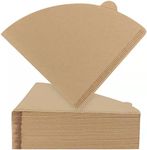
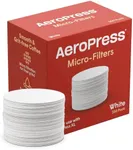


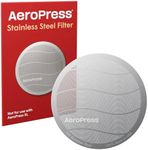
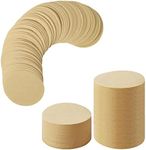
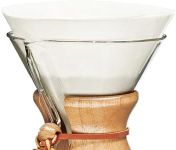





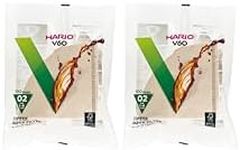
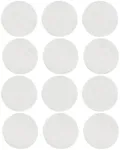
![IMPRESA [200 pack] No Mess French Press Brew Bag to Save Time Cleaning - Disposable French Press Filter Bags Prevent Grounds From Escaping - Ideal Mason Jar Cold Brew Filter Bags for Tea & Coffee](https://images-proxy.bestreviews.guide/EtBC1Dzl34VC3UYyOVKeMFnEie8=/0x150/https://m.media-amazon.com/images/I/419Xu3r7suL._AC_CX679_.jpg)

